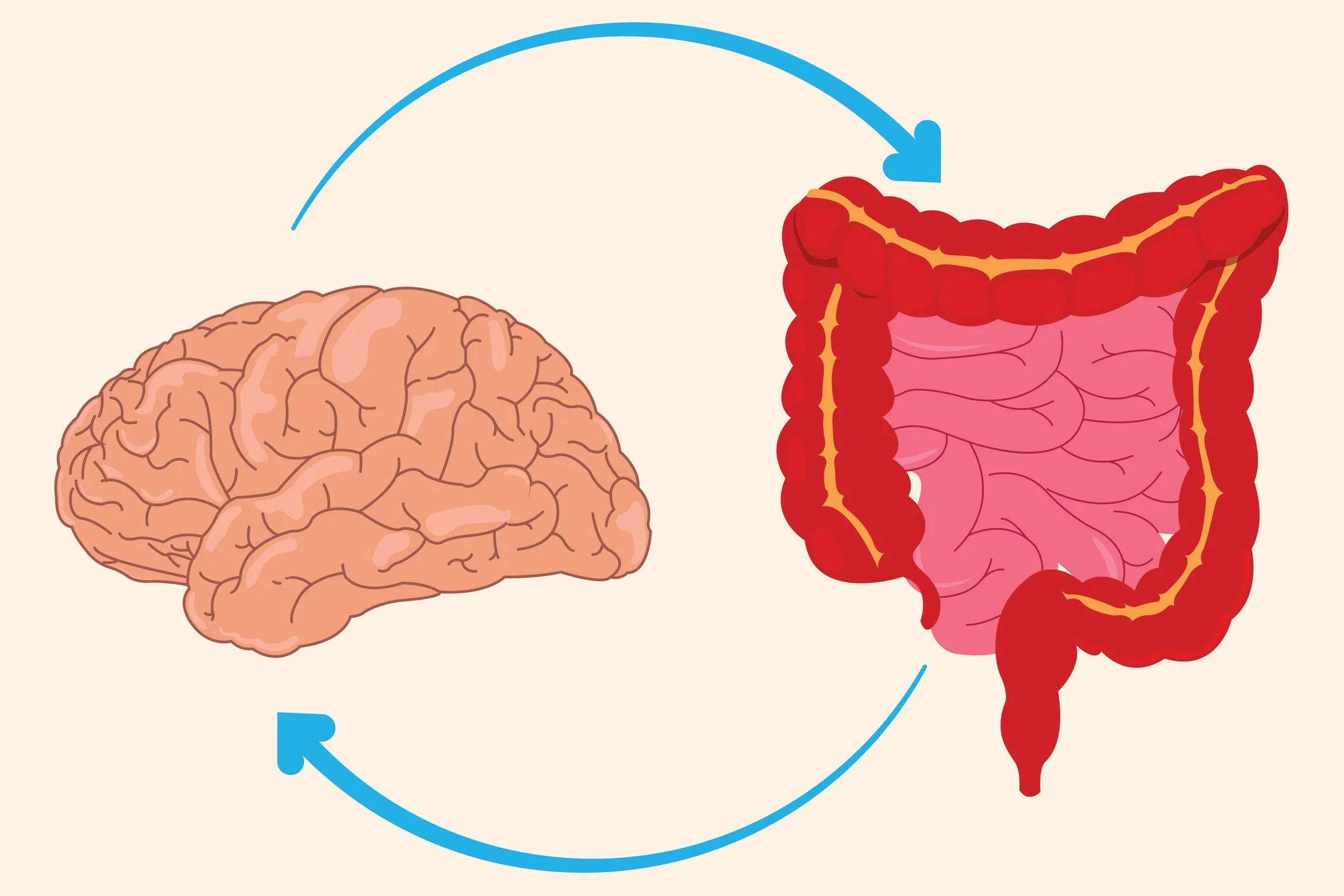The Gut–Brain Axis: 5 Key Facts Every Woman Should Know.
If you’ve ever felt butterflies before a big meeting or lost your appetite when anxious, you’ve already experienced the gut–brain connection in action.
But this relationship runs far deeper than a few nerves.
As a nutritional therapist specialising in women’s health, I often work with clients who are dealing with bloating, anxiety, fatigue, mood swings, and hormone imbalance — and the gut–brain axis plays a central role in all of these.
Here are five essential facts that explain how your gut and brain are connected, and what that means for your health.
1. Your Gut and Brain Are Constantly Talking
Your gut and brain are linked by the vagus nerve — a sort of internal motorway for messages. This means what’s happening in your head can affect your digestion, and what’s going on in your gut can have a real impact on your mood, energy, and even how well you sleep.
If you're constantly stressed, your digestion will likely suffer. Likewise, if your gut health is poor, it can leave you feeling low, foggy, or anxious — often without a clear reason why.
2. Your Gut Has Its Own Nervous System
Inside your gut is something called the enteric nervous system: a network of around 500 million neurons, often referred to as your "second brain." While it doesn’t think in the same way your brain does, it plays a crucial role in regulating digestion and communicating with the nervous system.
This helps explain why emotional stress can cause things like stomach cramps, bloating, or irregular bowel movements — it’s all connected!
3. Gut Bacteria Help Regulate Mood
Your gut is home to trillions of bacteria, collectively known as your microbiome. These bacteria don’t just help with digestion, they also produce neurotransmitters, including:
Serotonin (about 90% of it is made in the gut!)
GABA, which helps calm the nervous system
Dopamine, associated with motivation and pleasure
If your gut microbiome is imbalanced (a state called dysbiosis), you may feel more anxious, tired, or emotionally off-kilter, even if everything else in your life seems fine.
4. Inflammation in the Gut Affects the Brain
If your gut lining becomes damaged through stress, food sensitivities, or long-term imbalance, it can lead to something called intestinal permeability, often referred to as “leaky gut.” This allows inflammatory compounds to enter the bloodstream and travel to the brain.
This inflammation can manifest as brain fog, low mood, fatigue, or heightened stress responses. For women, especially during hormonal shifts, this can be even more pronounced.
5. You Can Support the Gut–Brain Axis Through Food and Lifestyle
The good news? There’s a lot you can do to support this powerful connection between your gut and your brain.
Here are some simple ways to get started:
• Eat a variety of fibre-rich plant foods to help nourish your beneficial gut bacteria.
• Include fermented foods like kimchi, sauerkraut, kefir, or live yoghurt.
• Add polyphenol-rich foods such as berries, dark chocolate, and olive oil.
• Incorporate stress-reducing practices like walking, breathwork, or journaling.
• Stay well hydrated, and be mindful of your alcohol and caffeine intake.
• Slow down at mealtimes and chew thoroughly to support proper digestion.
So… Is Your Gut Trying to Tell You Something?
If you’ve been feeling off — emotionally or physically — your gut could be playing a bigger role than you realise. Supporting your digestion isn't just about avoiding bloating; it's about building mental resilience, balancing your hormones, and protecting your long-term well-being.
If you're curious about what this could look like in your own life, I'm here to help.
I work with women to improve digestion, mood and stress through personalised nutrition and lifestyle support. If you’d like to explore working together, feel free to get in touch 🙂.

